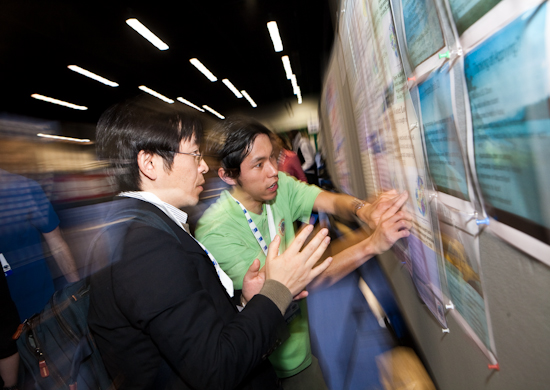
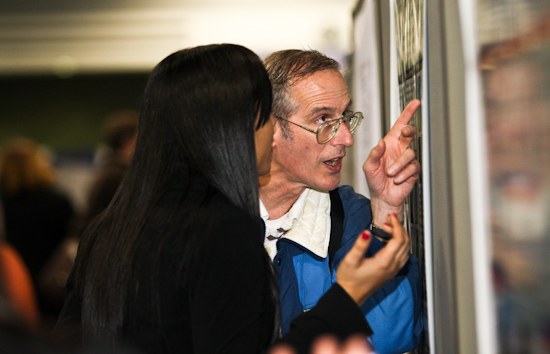
Fellows Honored at Review
At the Welcome Reception following the 90th Annual Review and Fellows Awards Sunday night, newly elected Fellows socialized with attendees at the Student Conference and Local Chapter Poster sessions, which were held in conjunction.



Public vs. Private: For Students, the Choice Is Theirs
Saturday’s Student Conference forum on “The Job Market” offered advice on what job hunters can expect in their career pursuits, and a clear theme of the discussion was the difference between employment in the private and public sectors. Trisha Palmer of the NWS Forecast Office in Peachtree City, Georgia, delineated many of the pros and cons of public sector work, noting the security, geographical flexibility, and benefits as some of the most positive aspects. Robert Baron, founder of Baron Services in Huntsville, Alabama, talked about some of the qualities that can lead to success in the private sector.
Additionally, Ryan Boyles of North Carolina State University noted that a new peril of job-hunting in the high-tech world is the plethora of personal information floating around the internet. Boyles recommended that students be very careful about putting personal pictures and other information online that could later be used against them in their job search.
Ultimately, all the speakers could agree that perhaps the most important advice they could give to the students is “do your best.”
Counting the Cards in Nature's Casino
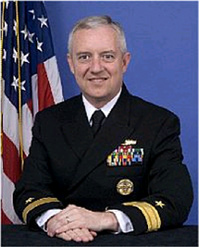
With “New Demands on Science and Services” being the theme of this AMS Annual Meeting in Atlanta, it is safe to say that no demand on climate science is more novel and complex than the national security angle of climate change. Strife in Africa is one area, as we mentioned here, but other flash points include the security of borders once covered by glaciers, water scarcity in numerous regions, and the newly navigable Arctic waterways.
It’s no wonder the Oceanographer of the Navy has gotten involved in this new area. Rear Admiral Dave Titley, oceanographer of the Navy, who has been charged with the U.S. Navy Task Force Climate Change, will be one of several national security experts featured in the two-part Tuesday Joint Session panel discussions (11 a.m. and 1:30 p.m.) on “Environmental Security: National Security Implications of Global Climate Change.”
In an interview on climate change with Armed Services radio, Admiral Titley showed a strikingly forward, mission-oriented viewpoint on the Navy’s interest in climate change, and not just the practical attitude of an officer with a research background.
“We’re operating in Nature’s casino,” he said, “and I intend to count the cards.”
Data Stewardship: A Basis for Change
Today’s Town Hall on Data Stewardship promises to be a good opportunity to consider how the atmospheric science community might reshape itself at the most fundamental level: the data underlying science and services.
According to Unidata’s Mohan Ramamurthy, chair of the AMS Ad Hoc
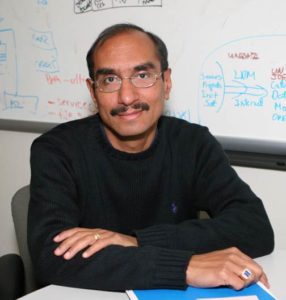
committee presenting its prospectus at the session (12:15 p.m.-1:15 p.m.; B211), data stewardship is not just a topic for people who specialize in archiving. Technology has made this a task for all of us. In the following email exchange, Ramamurthy made a good case to The Front Page for how data stewardship is basic to how the entire community interacts and progresses.
Why did AMS form an Ad Hoc Committee on Data Stewardship?
The AMS STAC Commissioner Roger Wakimoto was fielding a number of questions related to data, so in the fall of 2008 he began highlighting the importance of Data Stewardship. According to Roger’s report to the AMS Council in 2009
Our community is generating huge volumes of data from observing systems (especially remote sensors) and enormous outputs via numerical simulations. In addition, topics such as data archival, access (including free access between countries), maintenance, metadata, visualization, life expectancy are becoming critical at many institutions. In light of this background information, it was my suggestion that the AMS needed to propose a formal mechanism to recognize this important area that permeates our entire discipline.
How have stewardship needs changed in recent years?
Data has always been essential to the field. However, advances in computing, information and observational technologies have resulted in larger and larger volumes of diverse data being generated from many sources and they are being used/consumed by more and more people. What used to be the purview of just data centers and providers, has now become a responsibility for many more stakeholders. Also, there is increasing awareness of the importance of data and data stewardship. For example, the term “metadata” was not part of the scientific vernacular until recently, but now many more people understand it and recognize its importance. Similarly, until now there was no expectation that people would share datasets from their scientific studies or link them to publications with others. The best people did was give a URL where a reader of a scientific article could get a few additional plots or products. Today it is (theoretically) possible to link all of the data that went into a study (e.g., model output, model configuration, source code, derived analyses, etc.) in appropriate places in a paper. How to go about it? Who should be responsible for keeping those links and data sets alive in perpetuity?
How does AMS figure in this expansion of the possibilities, and responsibilities, of data stewardship?
We should understand that the AMS is not usually the producer of data sets. So the Society will have to work with data producers and data hosting/holding facilities. And how would AMS get authors to submit not just a manuscript but all of the data? And to where? Each area will have, among others, technical challenges, coordination and collaboration
challenges, and organizational challenges.
Also, data stewardship is a vast area, so we will have to scope it properly (i.e. limit it), or else nothing will get done. Picking those key areas will be a challenge when the membership is diverse and you have a large number of stakeholders.
What might attendees learn from the Town Hall in Atlanta?
The purpose of the Town Hall is two fold. a) To inform attendees about what the Ad Hoc committee is thinking and our proposed plans/activities. b) To gather feedback on our thoughts/plans/prospectus as well as get additional input on what AMS members would like to see happen in this area.
Who will most benefit from attending?
Almost anyone who is interested in data stewardship issues (scientists, data providers, editors and publication commission folks, librarians, educators, IT personnel) will benefit or can attend and contribute their thoughts. But realistically, I expect a smaller subset of those people who are most interested in this subject to come to the Town Hall.
Will feedback from attendees influence the committee’s task?
This is a brand new area for AMS. As such, everything is a work in progress. We want our mission and tasks to be shaped by the membership.
Nothing but the Truth, Part 2
We noted that Richard Clark challenged his audience at the AMS Student Conference to make the pursuit of truth their purpose in scientific careers. Not surprisingly, others at the conference expanded on that theme. Jon Nese of Penn State gave a talk spanning some of the pros and cons of life in the various sectors of the weather enterprise, but perhaps most striking was his observation of the role that trust plays in scientific endeavors, academic, private, research, operational or otherwise. It’s worth hearing the way Jon expressed the interdependence between the sectors–operational, research, entrepreneurial, and otherwise–in this pursuit of truth as we embark on a meeting week full of discussions of uncertainties, promising findings, and future priorities.
Weather Fun Draws a Crowd
About 5,000 people came in out of the rain to enjoy the weather fun inside at the 9th WeatherFest this afternoon.
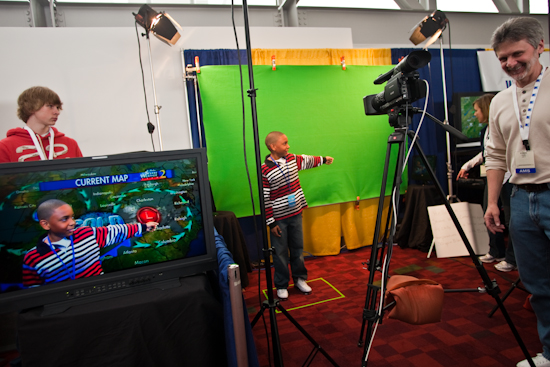
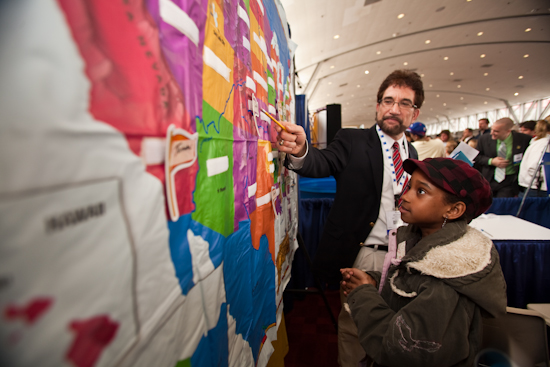
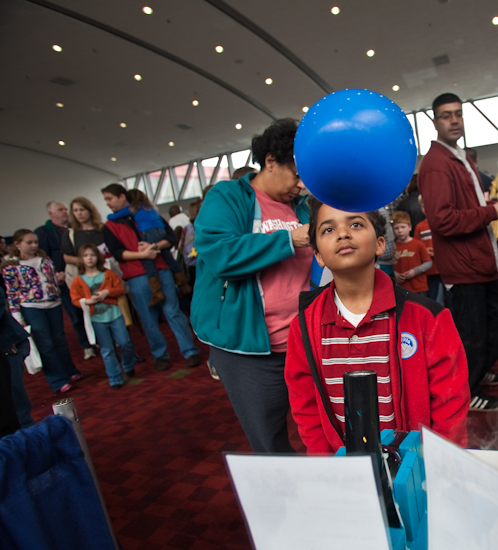
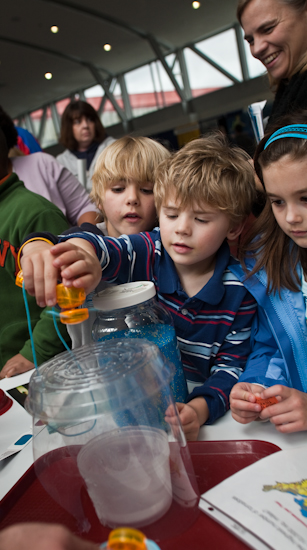
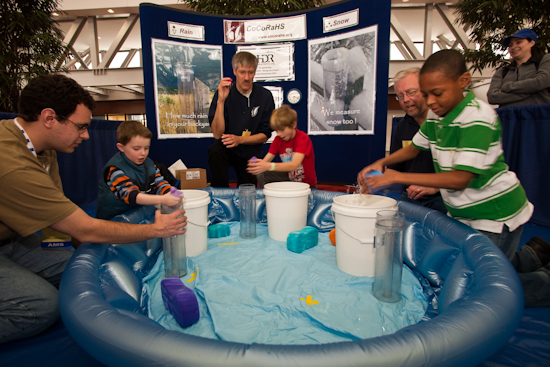
Nothing but the Truth
At the Student Conference yesterday, Richard D. Clark of Millersville University addressed the role that scientists play in the community, narrowing it down to one essential word: truth. While acknowledging that there is always uncertainty, a scientist must always strive for “honesty and integrity in pursuit of truth,” according to Clark.
He explained that students–and all scientists–can fulfill this mantra by making certain the information they provide is always based solely on evidence, and also by aspiring to unquestionable ethics (while also passing on those ethical standards to others). Clark stressed the importance of clarifying scientific discussion by quantifying the uncertainty inherent in science.
Clark used Roger Pielke Jr.’s The Honest Broker to analyze the various roles scientists may play in their careers: from information provider (the “pure scientist”) to advisor for decision makers (“the honest broker”). Clark cited a recent poll that ranked scientists as the third-most trusted in a list of 22 selected professions, behind doctors and teachers. He noted that regardless of the role, the scientist ultimately must maintain that trust through the pursuit of integrity and the truth.
Clark recommended several ways that students can foster their pursuit of the truth, including 1) using professional societies and their policy statements for guidance, 2) keeping current on reports from major national organizations like the NRC and NSF, and 3) becoming involved in community activities related to their chosen fields.
The development of trust to facilitate the dissemination and application of scientific data is a currently a hot topic, and a number of presentations at the Annual Meeting are examining the issue, including:
Developing Climate Communication Tools for Integrated Decision Support at the Local and Regional Level (Tuesday, 8:30-9:45 a.m., B213)
A Community Wind Energy Project in Rural Albany County, New York State (Wednesday, 10:30 a.m-12:00 p.m, B202)
Emerging Niche Clienteles for Climate-Based Decision Support: Organic Farmers in Georgia (U.S.) (Thursday, 8:30-9:45 a.m., B212)
Knowing Which Way the Wind Blows: Weather Observation, Belief and Practice in Native Oklahoma– First Impressions (Monday, 2:30-4:oo p.m., Exhibit Hall B2)
Reception Tonight Is a First for AMS
This evening at 8-10 p.m. is the First Annual Reception for
CoRioLiS: LGBTQs & Friends in the American Meteorological Society.
Enjoy refreshments and hear from guest speaker Guy Walton, TWC forecaster, on “Acceptance and Innovation at The Weather Channel.” (By the way, after you hear Walton’s talk at the reception, consider catching his temperature extremes study Tuesday at 11 a.m.).
The reception, in the Juniper Room M2-North Tower of the Omni Hotel, in sponsored by the AMS Board on Women & Minorities, the UCAR Community Building Program, and the National Organization of Gay and Lesbian Scientists and Technical Professionals (NOGLSTP). For more information, contact Zhenya Gallon at ext. 8607, [email protected],
or see CoRioliS on Facebook.
Get Hands-On at WeatherFest
Ready for some fun and games? Come to the kickoff of WeatherFest, a huge interactive science fair for weather enthusiasts of all ages. From noon to four on Sunday, nearly sixty exhibitors will feature a variety of displays designed to instill a love of science and learning. Meet your favorite local television meteorologist and learn how weather and climate affects daily life in Atlanta. Try a real weather forecast online at Forecast Central (http://forecastcentral.com) or create a “Cloud in a Bottle” at North Wasco District 21’s booth.
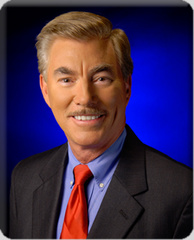
The Georgia Aquarium (http://georgiaaquarium.org) will be there with interactive hands-on games and activities. Learn how aquatic animals like penguins, sea otters, and beluga whales have adapted to survive chilly conditions. Georgia Tech Research Institute (http://gtri.gatech.edu) will have a mini-museum on the science and technology of lasers, with applications in meteorology. With a multitude of schools exhibiting at the event, it’s the perfect venue for both teachers and students looking to advance their knowledge.
For the kids there will be numerous weather games throughout the fest as well as raffle drawings. Check out AccuWeather’s Kids Weather Area featuring games, downloads, and “WheatherWhys,” or toss a balloon or two at CoCoRaHS’s (http://www.cocorahas.org/) Rain Gauge Water Balloon Toss.
WeatherFest is not only fun but free, so come get up close and personal with the weather on Sunday from noon to four in Registration Hall A/B at the Georgia World Congress Center.